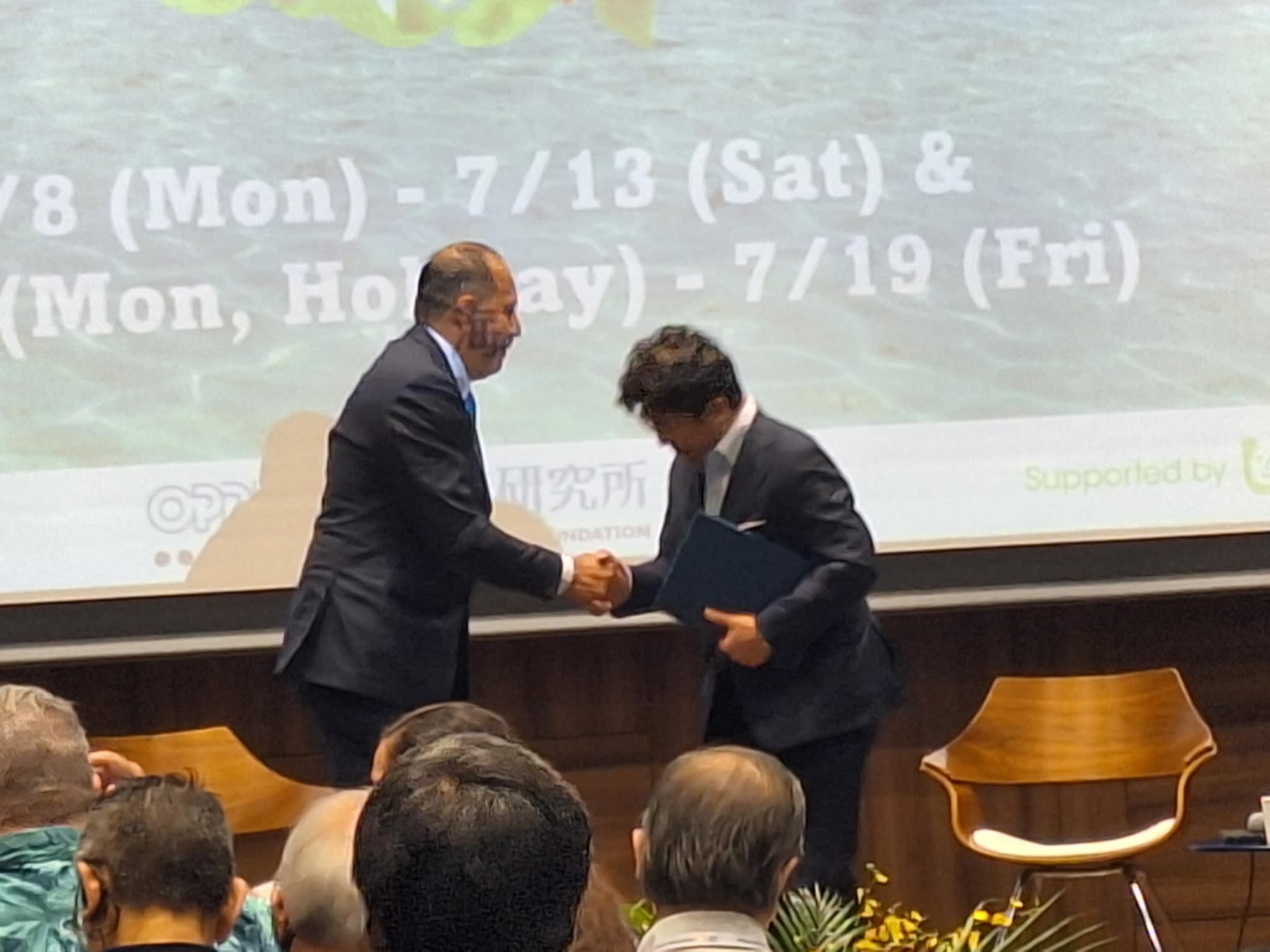Niue Premier Dalton Tagelagi says Ocean education can be a beacon of hope and sustainability for future generations.
He made the statement on Monday at the Oceans Day in Tokyo, Japan, with a message of hope and sustainability.
“Today, I share the significance of ocean education in the context of Niue, a small island nation in the Pacific Ocean,” he said.
Tagelagi described Niue, often called “The Rock of Polynesia,” as a testament to the profound relationship between a community and the ocean.
“Our island’s rich marine biodiversity, pristine coral reefs, and vibrant culture are intricately woven with the ocean,” he said. However, he acknowledged the challenges faced by his nation.
“Climate change, ocean acidification, and overfishing threaten our delicate marine ecosystems and the livelihoods of our people.
“In Niue, ocean education is not just an academic pursuit; it is a way of life,” Tagelagi stated.
From a young age, Niuean children learn to understand and respect the ocean, absorbing traditional knowledge passed down through generations.
“This indigenous knowledge encompasses sustainable fishing practices, navigation techniques, and an intimate understanding of marine ecosystems.
“By blending this traditional wisdom with modern scientific approaches, Niueans are developing a comprehensive ocean education framework that is culturally relevant, adaptable, and scientifically robust,” he explained.
Tagelagi highlighted a home-grown initiative, the Niue and Ocean Wide (NOW) Trust.
“The Trust aims to enhance marine conservation through community engagement and education.
“By involving schools, youth groups, and local leaders, we ensure that ocean education is inclusive and participatory, building a strong foundation for sustainable ocean management,” he said.
A significant aspect of Niue’s commitment to ocean education is its work on the conservation of the Uga, or coconut crab.
“The Uga is not only an important part of Niue’s biodiversity but also a cultural and economic resource,” Tagelagi said.
He said unsustainable harvesting had led to a decline in Uga populations, prompting Niue to implement comprehensive measures to protect and sustainably manage Uga stocks.
“This includes community-led monitoring programmes, regulated harvesting seasons, and educational campaigns.
“By educating the community about the ecological role of Uga and the need for sustainable practices, Niue is ensuring the long-term viability of this crucial species.
“The work on Uga conservation is a prime example of how ocean education can lead to tangible conservation outcomes. By educating the community about the ecological role of Uga and the need for sustainable practices, Niue is ensuring the long-term viability of this crucial species. This effort not only helps to maintain the ecological balance but also preserves a key cultural practice for future generations,” Tagelagi pointed out.
Tagelagi also emphasised the importance of partnerships with international organisations like the Sasakawa Peace Foundation.
“Their expertise in promoting peace and sustainability can significantly bolster Niue’s initiatives.
“By supporting collaborative programmes that facilitate knowledge exchange, capacity building, and access to resources, we can enhance the effectiveness of ocean education in Niue.”
“Together, we can share best practices, innovate solutions, and address the unique challenges that Niue faces, helping to achieve its conservation and sustainability goals,” he said.
Currently attending the PALM 10 meeting in Japan, Tagelagi stressed Niue’s commitment to strengthening ties with Japan and the international community.
“We are working together towards shared goals of sustainability and ocean conservation”
Tagelagi also recognised the Pacific Islands Forum (PIF) and its 2050 Blue Pacific Strategy.
“This framework focuses on sustainable ocean management, addressing climate change impacts, enhancing ocean governance, and fostering capacity building and education.
“The Strategy’s emphasis on integrating traditional knowledge with modern science and promoting ocean literacy is essential for the sustainable future of our ocean,” he said.
The Niue Premier explained the broader implications of ocean education in Niue.
“Our experiences and solutions can serve as a model for other small island developing states facing similar challenges.
“By promoting ocean literacy and fostering a sense of global citizenship, we can inspire individuals and communities worldwide to take action in protecting our oceans.
“Ocean education is a powerful tool for fostering sustainable development, preserving cultural heritage, and empowering communities
“Together we can ensure that future generations inherit a healthy, vibrant ocean that continues to sustain life and inspire wonder,” Tagelagi said in Tokyo.














